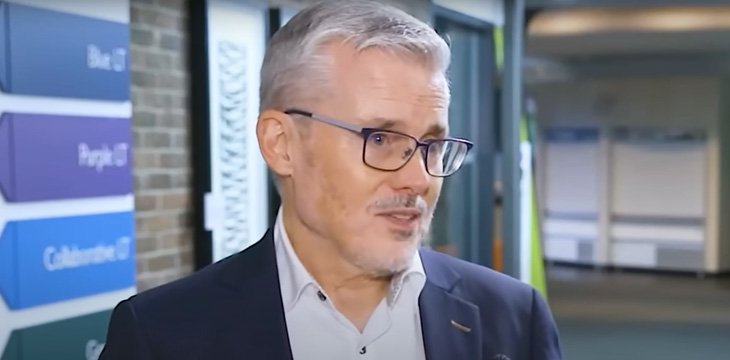|
Getting your Trinity Audio player ready...
|
Blockchain isn’t just a technological aspect of Bitcoin. It could be used for a number of use cases like payments, invoices, document management, and especially supply chain. One of the pioneers in using blockchain for the food supply chain is UNISOT, a web3 supply chain traceability platform as a service.
In his interview with CoinGeek Backstage during the recent IEEE event at the University of Exeter, UNISOT founder and CEO Stephan Nilsson explained how they use blockchain as well as IPv6 to benefit the food industry together with one of their partners, Local2Local.
“Our passion is starting out from the food supply chain,” Nilsson started.
“We try to do as much as we can to shorten the food supply chain. Right now, we have a partner/customer, a company called Local2Local. What they are doing with our system together with us is that they connect local farmers—local ecological, high-quality farmers—with local customers, making food supply chains more efficient and sustainable,” he explained.
During his presentation at the IEEE Exeter Blockchain event, Nilsson described IPv6 and blockchain as a “match made in heaven.”
“I see that what Satoshi already knew back when he created Bitcoin, that he created this function called sending from IP-to-IP. So, what this means for the industry is that we can now send information, and we can send payments much more secure and efficient by implementing IPv6 and blockchain together,” the UNISOT founder told CoinGeek Backstage on the sidelines of the event.
Nilsson explained that with IP-to-IP transactions, we could have different IP addresses that are just short numbers. He added that with IPv6, different products and devices could have unique IP addresses, opening up a safer and more efficient industry.
“By implementing IPv6 together with blockchain, we are solving a lot of these [Internet] problems. [It] means that companies can communicate very securely with each other, even to the extent that now we have unlimited amount of IP addresses,” he noted.
“This is the magic thing to have IP with blockchain is that we can monetize the data packets on the lowest level of the Internet…Now we can actually pay to get into [a] webpage. You have to pay to make a micro transaction to use an API or something like that, which means that now we can monetize much more and decentralize away from like Google and Facebook,” he said.
Wrapping up, Nilsson shared how eager the students of the University of Exeter were to learn more about the underlying technology of blockchain. He clarified during his discussion that Bitcoin and blockchain “isn’t a technical system” but a “legal, economic system.”
“We talked about who is regulating this, and the answer to that is that we have [a] very decentralized regulation system today, which means that every country is regulating their own country, which means we don’t have a world government,” Nilsson explained. “It’s not a world government system. It’s decentralized by the current laws and regulations that we have,” he pointed out.
Watch: Supply Chain, Product Provenance & Blockchain at CoinGeek Zurich

 03-01-2026
03-01-2026 




